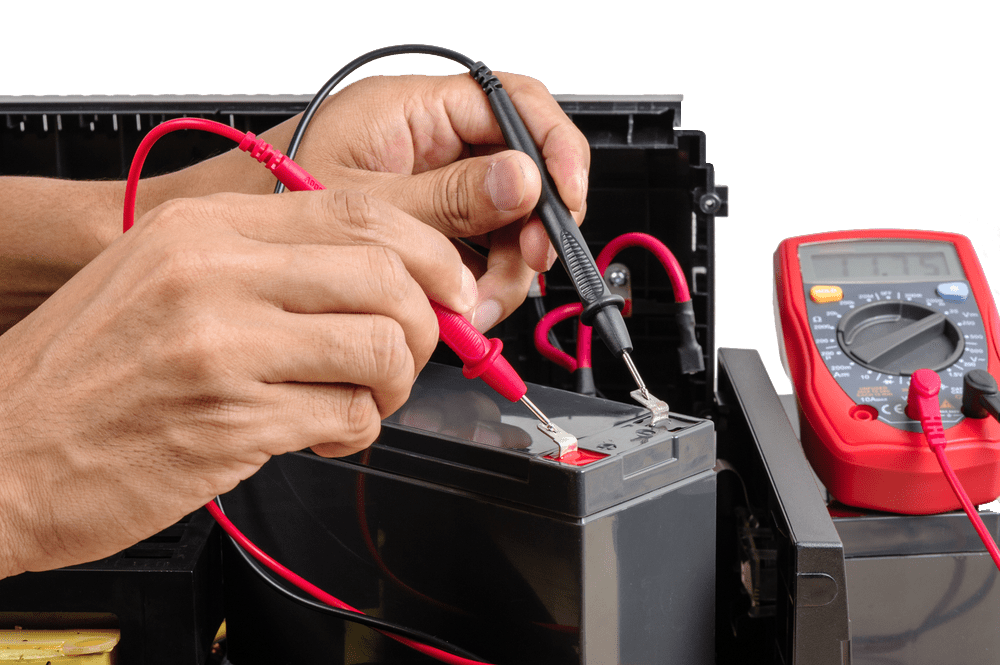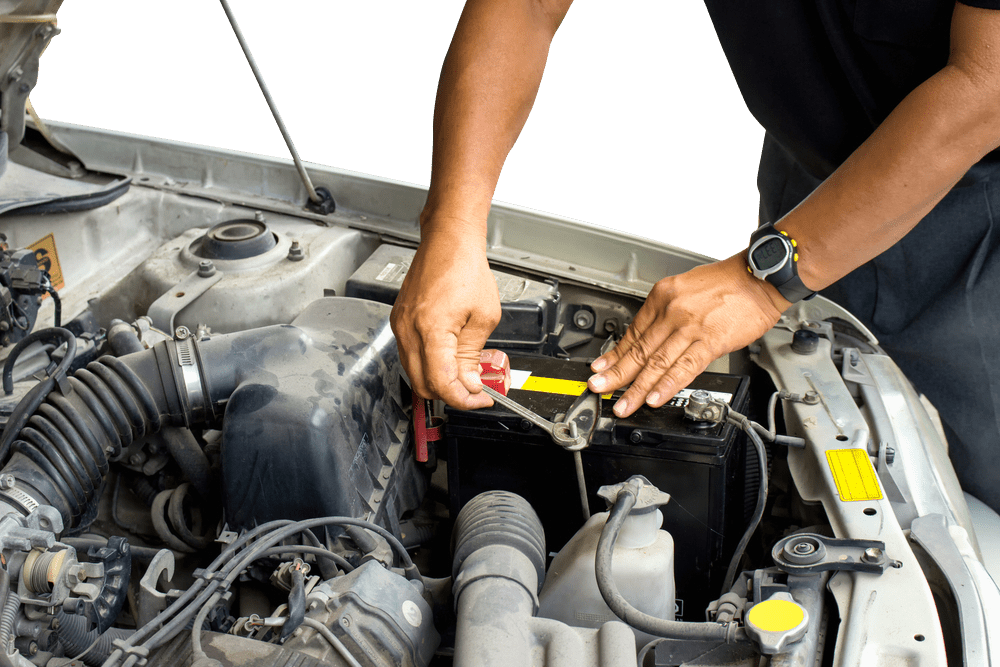- 16 Oct 2024
Deep Cycle Battery, Everything You Need to Know

When it comes to powering vehicles with auxiliary batteries, especially for extended periods, deep cycle batteries have become increasingly essential. Whether you’re off-roading, camping, or simply ensuring your car’s electrical systems remain operational, understanding the ins and outs of deep cycle batteries is crucial. In this guide, we’ll cover everything you need to know about deep cycle batteries, how they differ from traditional car batteries, and their advantages for various uses.
What is a Deep Cycle Car Battery?
A deep cycle battery is a type of lead-acid battery specifically designed to provide sustained power over a long period. Unlike regular car batteries that are designed to deliver short bursts of energy for starting engines, deep cycle batteries can be discharged and recharged many times without suffering major degradation. This makes them ideal for applications requiring consistent, long-term power.
Types of Deep Cycle Batteries
While deep cycle batteries come in several forms, the two most common types are:
- Flooded Lead Acid Batteries (FLA): These are the traditional types of deep cycle batteries that may require regular maintenance, such as topping off with water.
- Sealed Lead Acid (SLA) or Absorbed Glass Mat (AGM) Batteries: These are maintenance-free and offer more convenience than flooded batteries. AGM batteries are known for their durability and higher discharge cycles.

Difference Between Deep Cycle Car Batteries and Regular Car Batteries
While both deep cycle and regular car batteries serve the purpose of powering vehicles, their functionality and design vary significantly:
- Primary Function:
- A regular car battery is designed to provide a quick, high-powered jolt to start a car’s engine.
- A deep cycle battery, on the other hand, is built to provide continuous power over an extended period.
- Discharge Cycles:
- Car batteries can only be discharged partially before recharging, usually around 20-30% of their capacity.
- Deep cycle car batteries can discharge as much as 80% of their total capacity before needing a recharge, making them more suitable for sustained power needs.
- Durability:
- Regular car batteries degrade faster if deep-cycled regularly, while deep cycle car batteries are specifically designed to handle this kind of use without significant wear.
How Does a Deep Cycle Car Battery Work?
A deep cycle battery is composed of thicker plates compared to regular car batteries, allowing them to release energy slowly and steadily over a prolonged period. When used in vehicles, particularly in scenarios where consistent electrical supply is required (for example, when camping or using electronic accessories in your car), deep cycle batteries ensure that power is available for the long haul.
The battery is recharged using either a vehicle’s alternator or an external charging device. It can also be connected to solar panels for a renewable energy source, making it a popular choice for off-grid or environmentally conscious applications.
Advantages of Deep Cycle Car Batteries
Deep cycle car batteries provide several distinct advantages, particularly for people who need reliable, long-term power. Some of the primary benefits include:
1. Longevity
A deep cycle battery is designed to be discharged and recharged numerous times, allowing for a long lifespan. Depending on usage, these batteries can last anywhere from 3 to 10 years, making them a cost-effective solution for sustained energy needs.
2. Consistent Power Output
Unlike traditional car batteries, which are meant to provide quick bursts of energy, deep cycle batteries offer a steady, reliable output of power. This is particularly useful in applications where you need long-lasting energy, such as running appliances or electronic devices in your car.
3. Versatility
Deep cycle batteries can be used in a variety of vehicles and situations. From RVs and boats to golf carts and solar energy systems, their ability to provide consistent power over a long period makes them incredibly versatile.
4. Durability
Deep cycle batteries are built to withstand more cycles of discharge and recharge, which makes them a better investment in applications where consistent power over long periods is required. They also handle rough conditions better, which is ideal for off-road adventures or extended use in RVs.
Applications of Deep Cycle Car Batteries
1. Recreational Vehicles (RVs)
In RVs, a deep cycle car battery can power onboard electronics and appliances without relying on the engine. This is crucial for those who enjoy camping or spending time in remote locations.
2. Marine Applications
Deep cycle batteries are often used in boats to power navigational equipment, lighting, and other electrical systems, especially when the engine is turned off.
3. Solar Power Systems
Many solar power setups utilize deep cycle batteries to store energy during the day and supply electricity at night. Their ability to handle repeated discharge cycles makes them ideal for renewable energy applications.
4. Off-Grid Power
Whether you’re living off the grid or enjoying an outdoor adventure in your caravan or motorhome, deep cycle car batteries provide a reliable source of power. They can be used to run various devices, such as refrigerators, lights, or communication equipment.
How to Maintain a Deep Cycle Car Battery
To get the most out of your deep cycle battery, regular maintenance is essential. Here are a few key tips to extend the life of your battery:
- Regular Charging: Always charge the battery fully after each use to prevent the plates from sulfating, which can reduce capacity over time.
- Avoid Deep Discharges: While deep cycle batteries are designed to be deeply discharged, it’s best to avoid fully draining them too frequently. Keeping the discharge around 50-60% can significantly extend the battery’s lifespan.
- Monitor Water Levels: For flooded deep cycle batteries, it’s important to check and maintain the water levels if required, ensuring the electrolyte remains at the proper level.
- Use a Quality Charger: Investing in a smart charger that offers multi-stage charging can help keep your battery in optimal condition.
Choosing the Right Deep Cycle Car Battery
When selecting the right deep cycle battery for your vehicle or application, there are several factors to consider:
- Battery Capacity (Amp Hours): The capacity of a deep cycle battery is measured in amp hours (Ah). The higher the Ah, the longer the battery can provide power. Choose a capacity that fits your specific needs, whether it’s for a short trip or extended use.
- Voltage: Ensure the battery’s voltage is compatible with your vehicle’s system. Most deep cycle car batteries come in 12V, but some applications may require higher voltages.
- Type: Depending on the use, you may choose between flooded, AGM, or lithium batteries. AGM and lithium batteries tend to be the most durable and require less maintenance than flooded batteries.
Conclusion
A deep cycle car battery is a critical component for anyone who needs reliable, long-term power. Its ability to withstand repeated discharges and recharges makes it ideal for a variety of applications, from recreational vehicles to solar power systems. By choosing the right type, maintaining it properly, and understanding its key benefits, you can ensure that your deep cycle battery will provide years of dependable service











